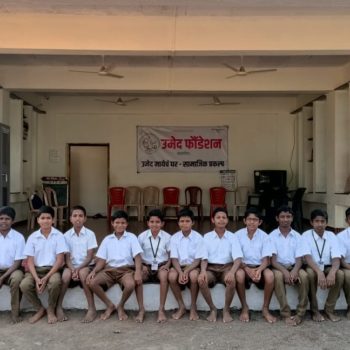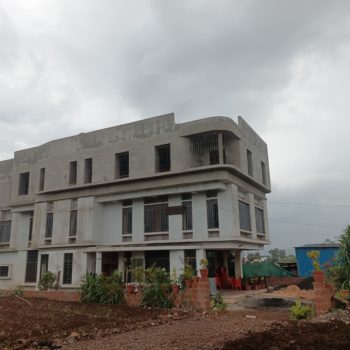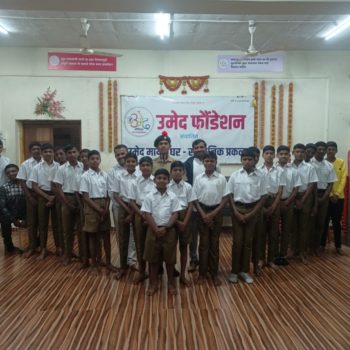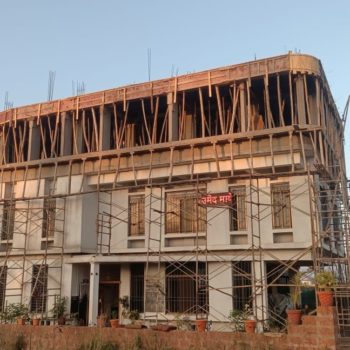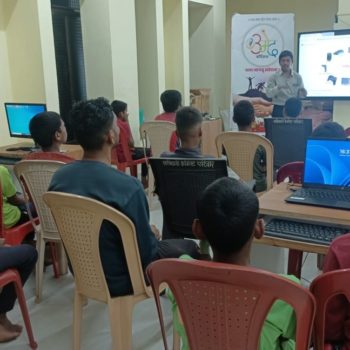UMED Mayech Ghar: A central of social innovation & development
Area:
Area: Kolhapur
Number of beneficiaries:
Direct: 155
Indirect: 2100
Need of Assessment
The project area exhibits characteristics typical of a rural environment, where we identified and evaluated several key social issues:
- Instances of school dropouts were noted, particularly in cases where one or both parents had passed away.
- Despite the presence of capable students, there was a deficiency in their connection to technology and vocational skills training geared towards employment.
In the process of finalizing the problem, we examined these factors through diverse activities such as school visits, interactions with teachers and students, local surveys, and assessments of existing educational infrastructure. These endeavours were undertaken in collaboration with the NGO network
Project Description
In an effort to tackle identified issues, the initiative “UMED Mayech Ghar: A Center for Social Innovation & Development” was launched with the following objective
- Meeting the residential and holistic development needs of students requiring support.
- Promoting employment-oriented vocational skills and training for students.
- Raising awareness about social issues among children.
- Offering access to global knowledge through technological
assistance.
What Was Done
A permanent infrastructure, comprising a hostel, tech lab, dedicated training section for children’s vocational skills, and a library for competitive exams, was developed. This central facility serves as a hub for regional activities such as scholarship drives and educational support initiatives. The operational center currently accommodates over 30 students for residence, utilizing the hostel and tech lab, has trained more than 100 students, and is actively involved in multiple social projects aligned with the project’s objectives. Furthermore, the project has created job opportunities for locals, with staff deployed to manage its operations.
Synergy
For over a decade, UMED has been actively addressing various social
issues, deploying volunteers throughout Maharashtra. A key advantage lies in the extensive coverage of volunteers. Leveraging their years of experience, UMED possesses valuable knowledge about local challenges, connections with local authorities, and more. We harnessed these collective strengths to advance the goals of the project.
Innovation
The distinguishing factor of the projects lay in effectively utilizing the available resources on a scalable level. We devised a unified task force model consisting of multiple teams with diverse skill sets. These teams included:
- Teachers Team: Comprising primary teachers, this team aimed to gather on-the-ground information about problems and needs, serving as a catalyst to reach beneficiaries.
- Local Workers: Consisting of local laborers, this team addressed construction-related needs.
- Doctors Team: Formed with the goal of providing medical
assistance. - Global Technology Professionals: Comprising professionals offering technical guidance, training, seminars, and similar support.
Sustainability
The project has constructed tangible infrastructure that effectively tackles diverse social issues at different scales, with the potential for further capacity expansion. During the infrastructure development, we maximized the use of natural resources, incorporating features like natural lighting and implementing waste management through a septic tank, which contributes to minimal maintenance requirements. Crops are harvested by the students in the surrounding which can fulfil their daily grocery requirements.
Scalability and Replicability
This model actively improved at every stage of its development. It has both scalable and replicable potential. A standout characteristic of the project is the incorporation of technology, allowing us to connect with various social problems and their corresponding solutions.
Women Empowerment
One of the primary features of the project revolves around women’s
empowerment, with a dedicated sub-project known as “Mahila Shakti”. The project’s focal point is to empower women by providing them with the necessary tools to chieve self-reliance through a skill enhancement program in stitching and tailoring. Currently, more than 100 women and girls have received training, and 40 women are already engaged in productive work through this initiative.
